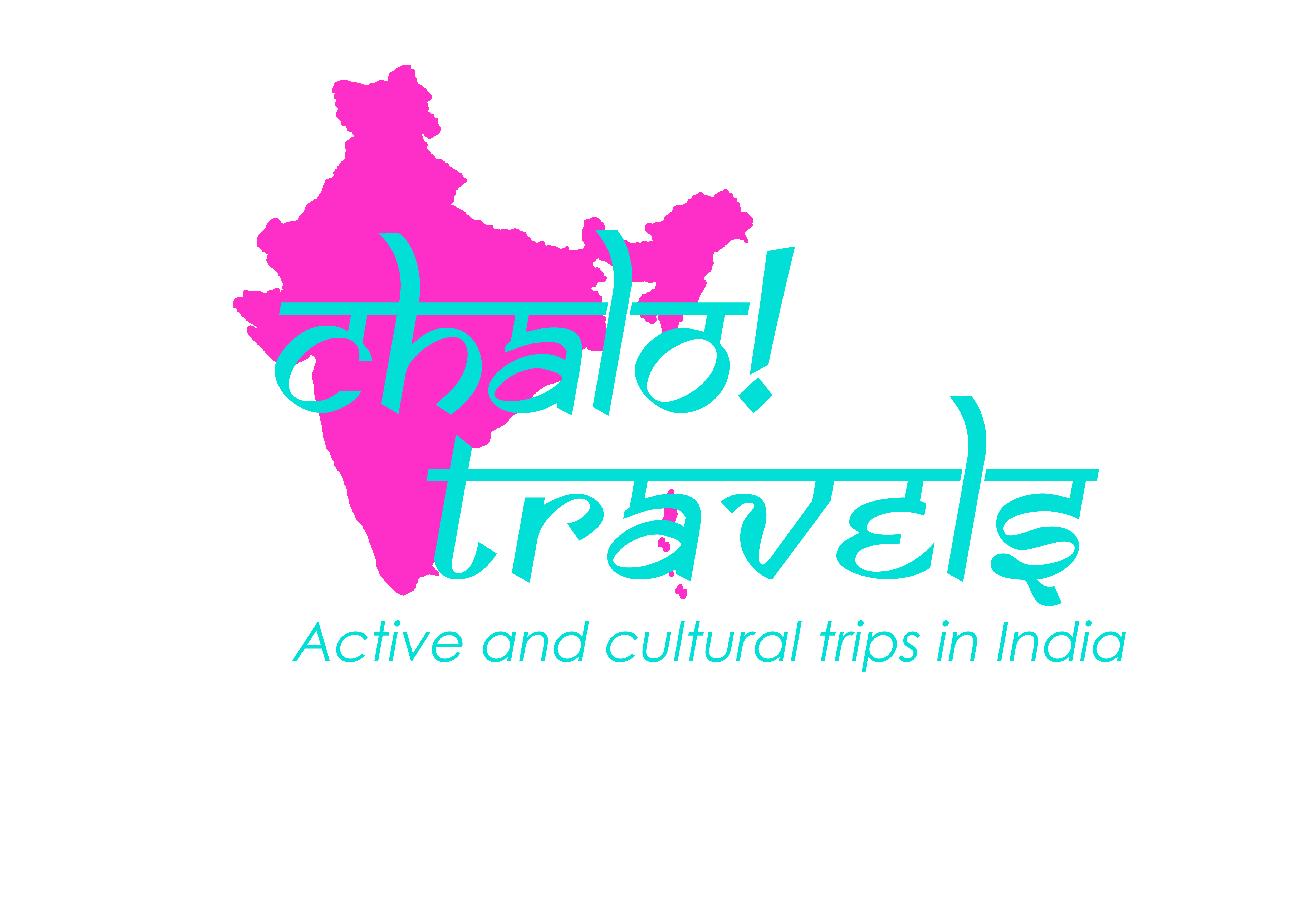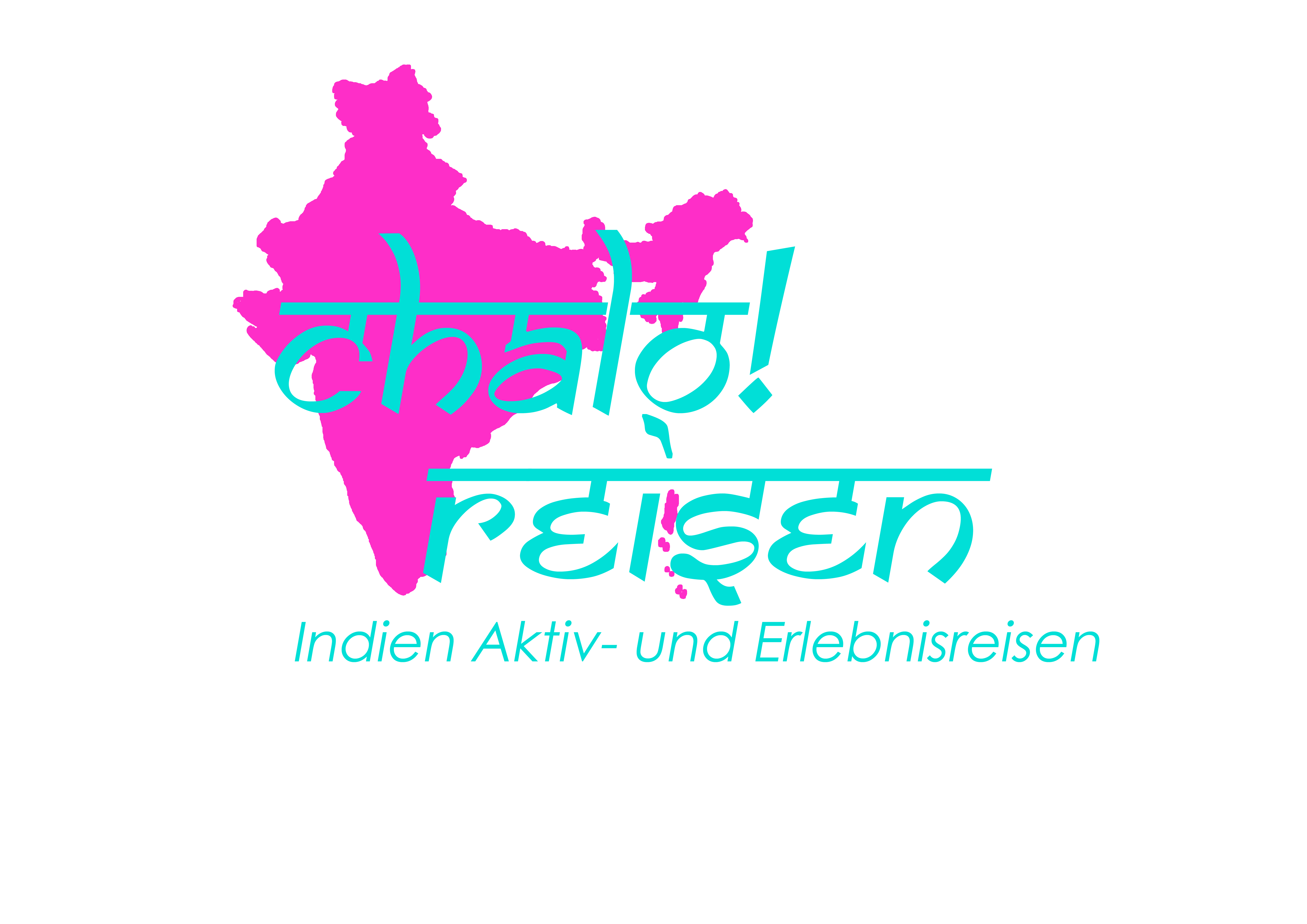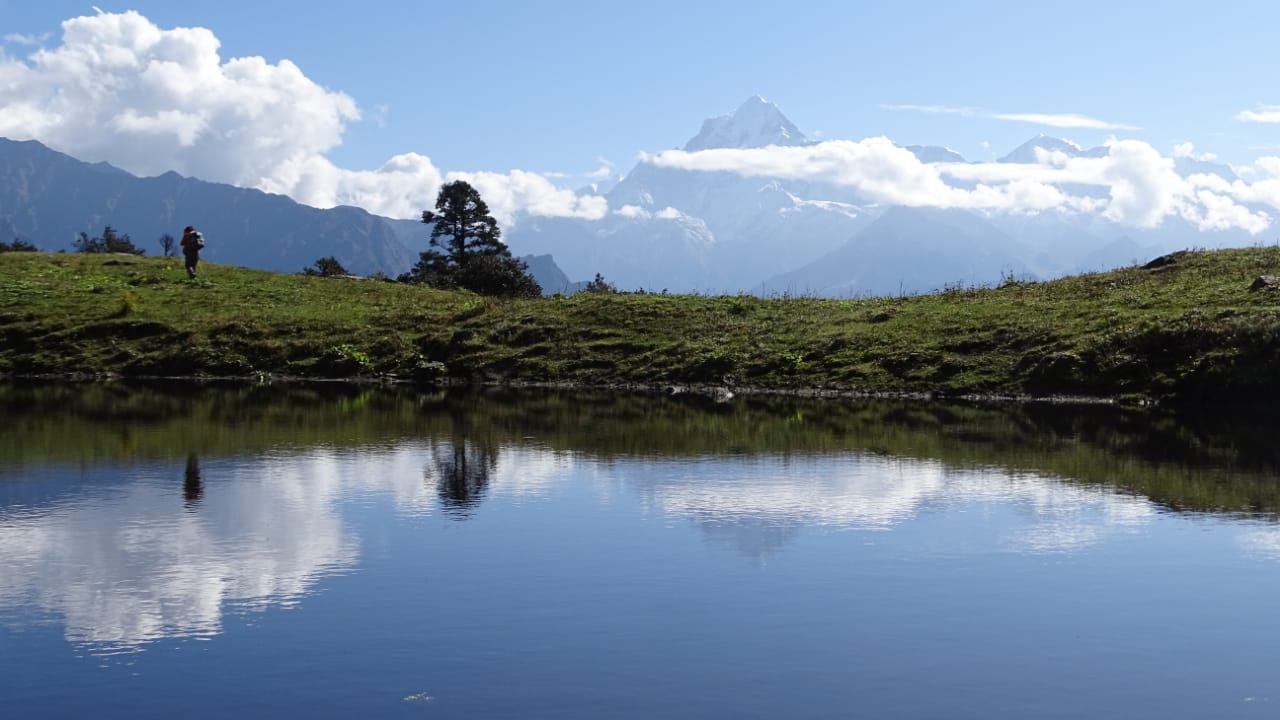- Sport & Abenteuer Reisen
- Reise Bausteine
- Trekking Reisen
Overview
As one of the most popular treks in the Indian Himalayan region of the Garhwal Himalaya, the Kuari Pass Trek attracts thousands of explorers from all over the world every year. The route to the Kuari Pass was once covered by Lord Curzon in 1905, so the Kuari Pass Trek is often referred to as the Lord Curzon Trail.
This trek is ideal as a yoga trek or in combination with an ashram stay in Rishikesh or simply as a wonderful sporty Himalayan addition to an India trip.
The trek leads through dense alpine oak and coniferous forests, rhododendron and birch forests, where it is teeming with a variety of animals and birds. You can even find leopards or a Himalayan black bear on this trail. The trek to the Kuari Pass is thus connected to every single element of the adventure, which often opens up on steep ascents and descents, narrow and tricky paths and bubbling streams.
Throughout the trail, you will have spectacular views of high mountain giants, such as the Trishul at an altitude of 7,120 metres, Kedarnath in 6,968 meters, Kamet’s Granite Pyramid at 7,756 meters and Neelkanth at 6,596 meters, the square peaks Gauri Parbat and Hathi Parbat, Badrinath, the icy ridge of Dunagiri, Rishikot, Changabang with 6,864 meters and the legendary twin peaks Nanda Devi with 7,740 meters.
Program
Day 1 Transfer: Rishikesh – Nandprayag – Ghat (210 km/7-8 hrs)
After breakfast we drive via Devprayag and Nandprayag in the direction of Ghat. Ghat is the basis of our hike. Arrival at the Ghat in the evening, here we will stay in a guest house.
Day 2 Ghat – Sutol – Ghunni (14 km by road and 3 km hike)
In the morning we climb a local jeep to the village of Sutol and from here we hike to the village of Ghunni. On this day we will camp on the school grounds of Ghunni. We stay in the tent.
Day 3 Ghunni – village Jhinjhi (14 km/6-7 hrs.)
Today we will get up early, as the day is intended for a long hike towards the village of Jhinjhi. The Trek is a mixture of many ascents and descents. We stay in tents.
Day 4 Jhinjhi – village Of Pana (14 km/6-7 hrs)
After breakfast we leave for the village of Pana. Today we walk through a valley, through forests, along the river and finally cross the bridge. We will pitch our tents in the village of Pana. Dinner and overnight in the tents.
Day 5 Pana – Dakhwani (14 km/6 hrs)
Today we will hike towards Dakhwani, the hike is a mixture of forest, alpine meadow, water fountains and side streams. Overnight in the tents.
Day 6 Dakhwani – Kuari Pass (3800 m) – Tali (9 km/5-6 hrs)
After an early breakfast we hike along the Kuari pass path to the Tali meadow. From the pass you have a wonderful view of the peaks such as Dronagiri, Nanda Devi, Changbang, Hathi Godhi Parvat etc. Overnight in tents.
Day 7 Tali – Auli – Joshimath – Rudraprayag (7 km hike and 115 km drive / 7-8 hrs)
The last day of our hike will be easy. We hike to the Auli Meadow, one of the most beautiful ski resorts in the Indian Himalayas. From there we drive via Joshimath, Chamoli and Karnprayag down to Rudraprayag. Overnight at the hotel in Rudraprayag.
Day 8 Rudraprayag – Rishikesh (160 km/5 hrs)
In the morning after breakfast we drive to Rishikesh
Services
- Trained trekking guide
- Cook and helper
- Load horses or carriers
- For 5 nights accommodation in 2-man tents
- 2 nights in the hotel with breakfast
- complete trekking equipment
- 6 days full board (breakfast, lunch packages, dinner and snacks) during the trek
- Transportation to and from Rishikesh to the start and end of the trek
Highlights
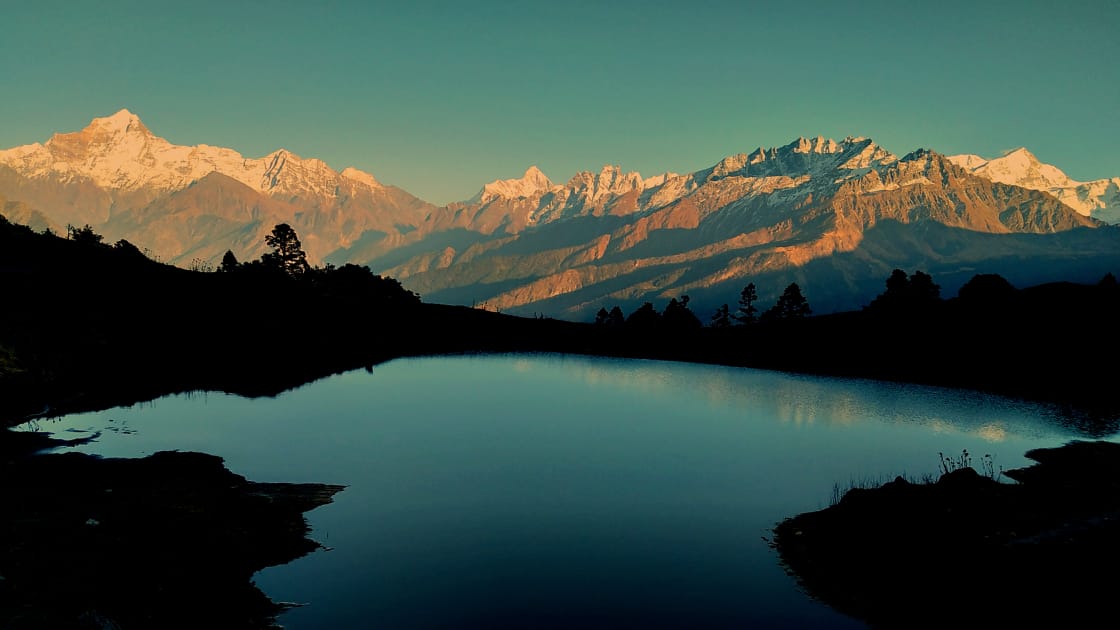
Kuari Trek 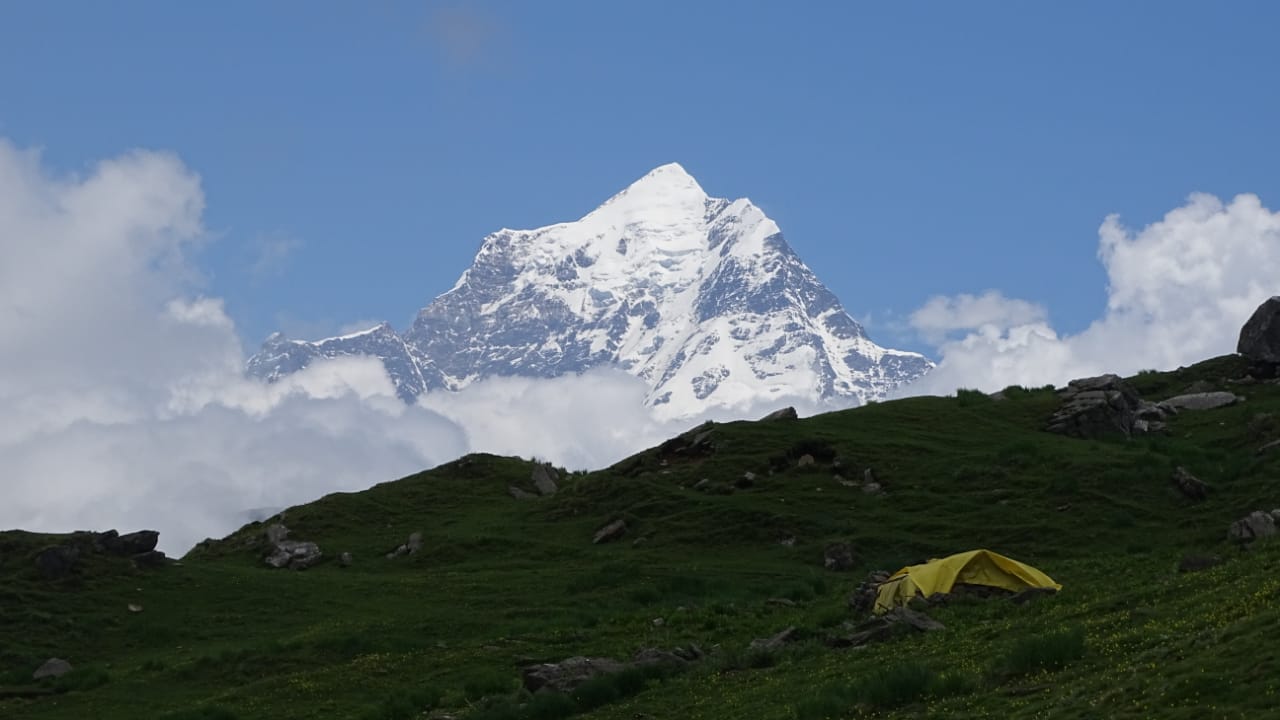
Kuari Trek 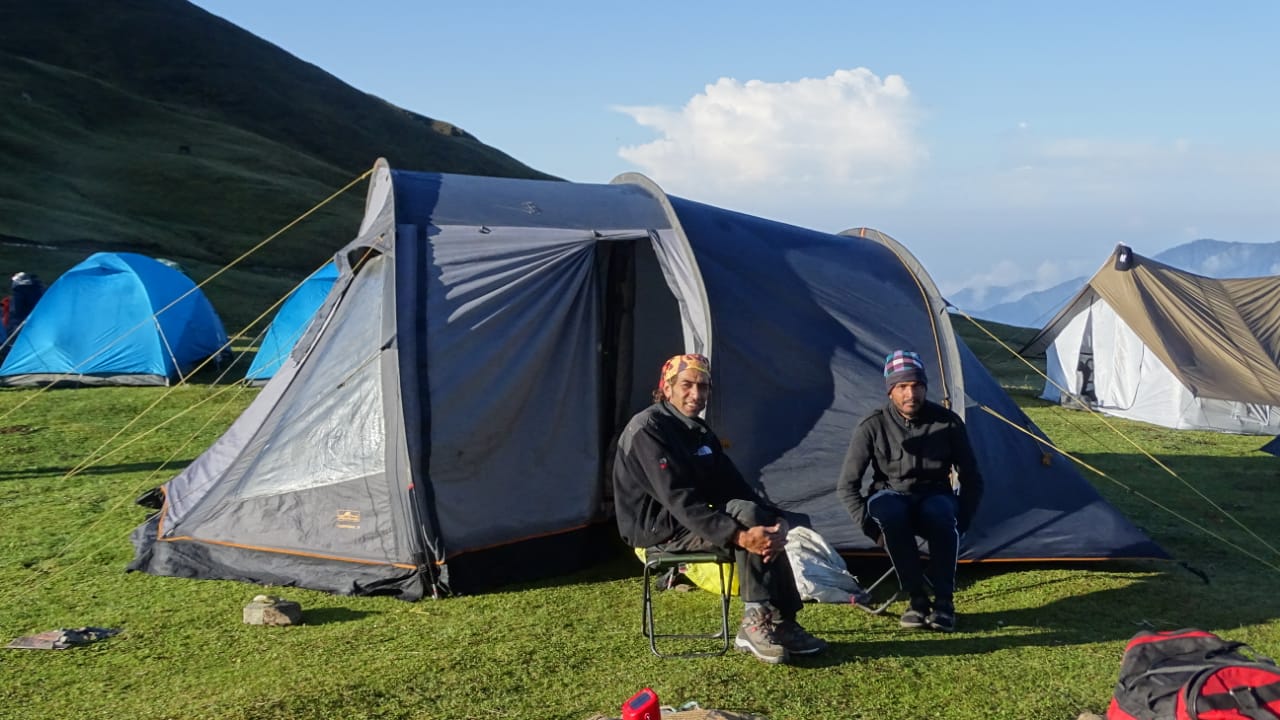
Kuari Trek 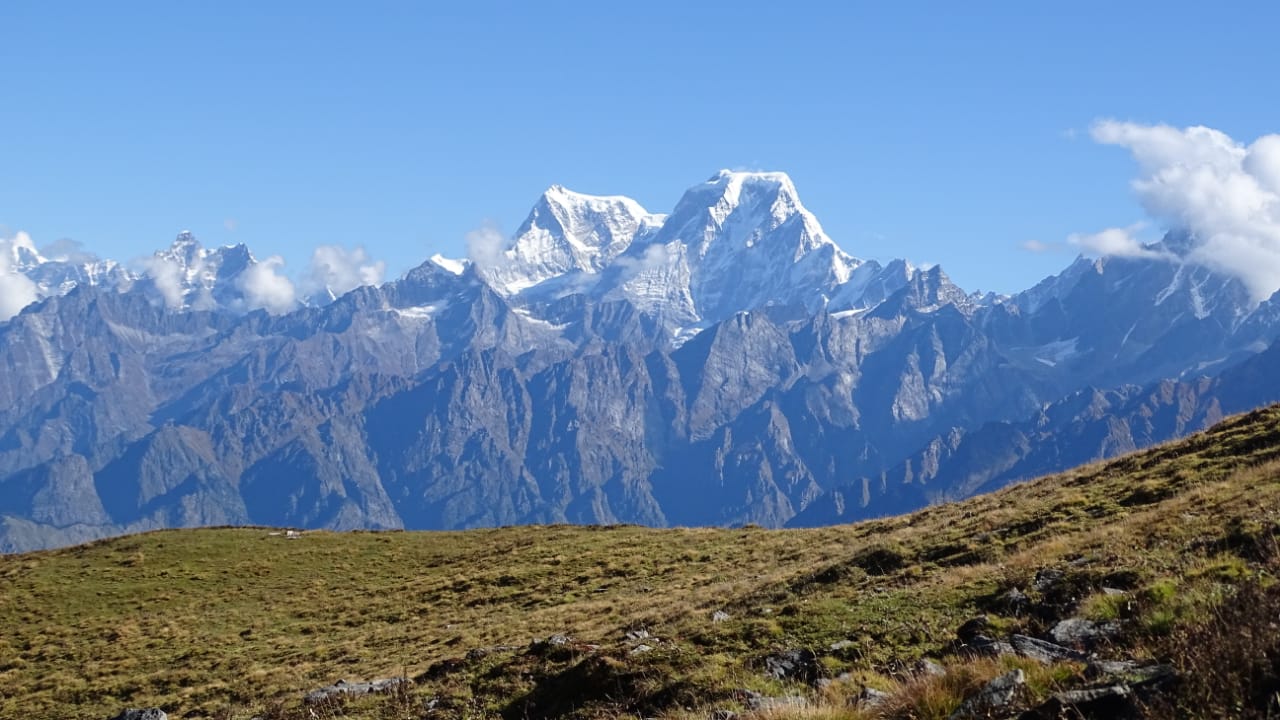
Kuari Trek 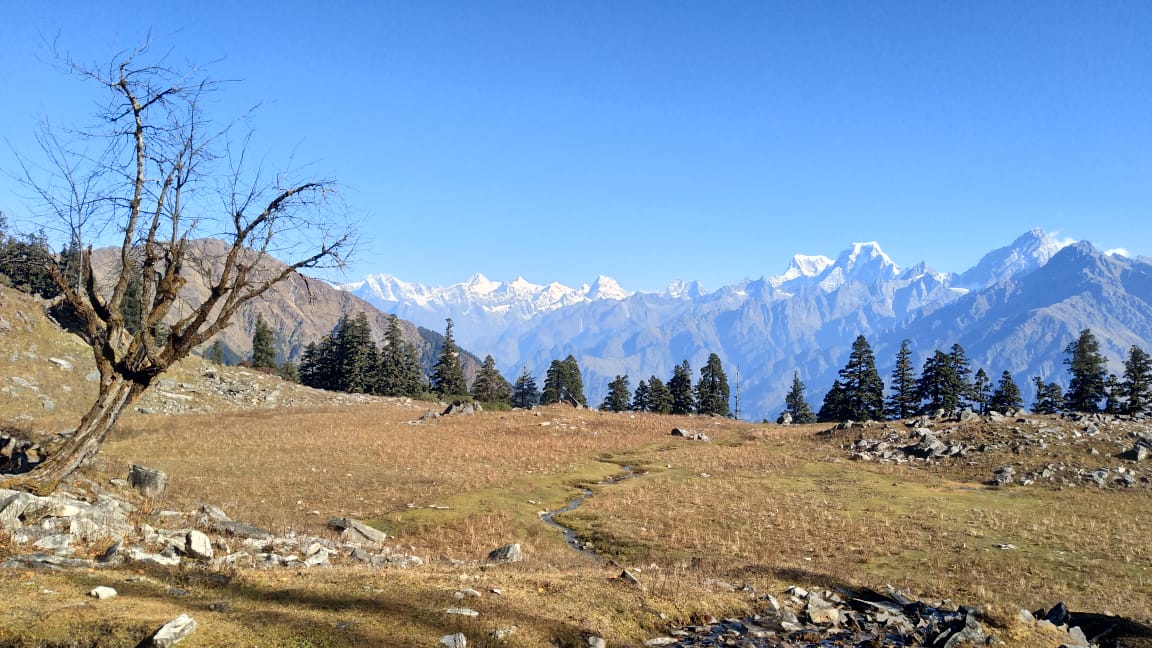
Kuari Trek 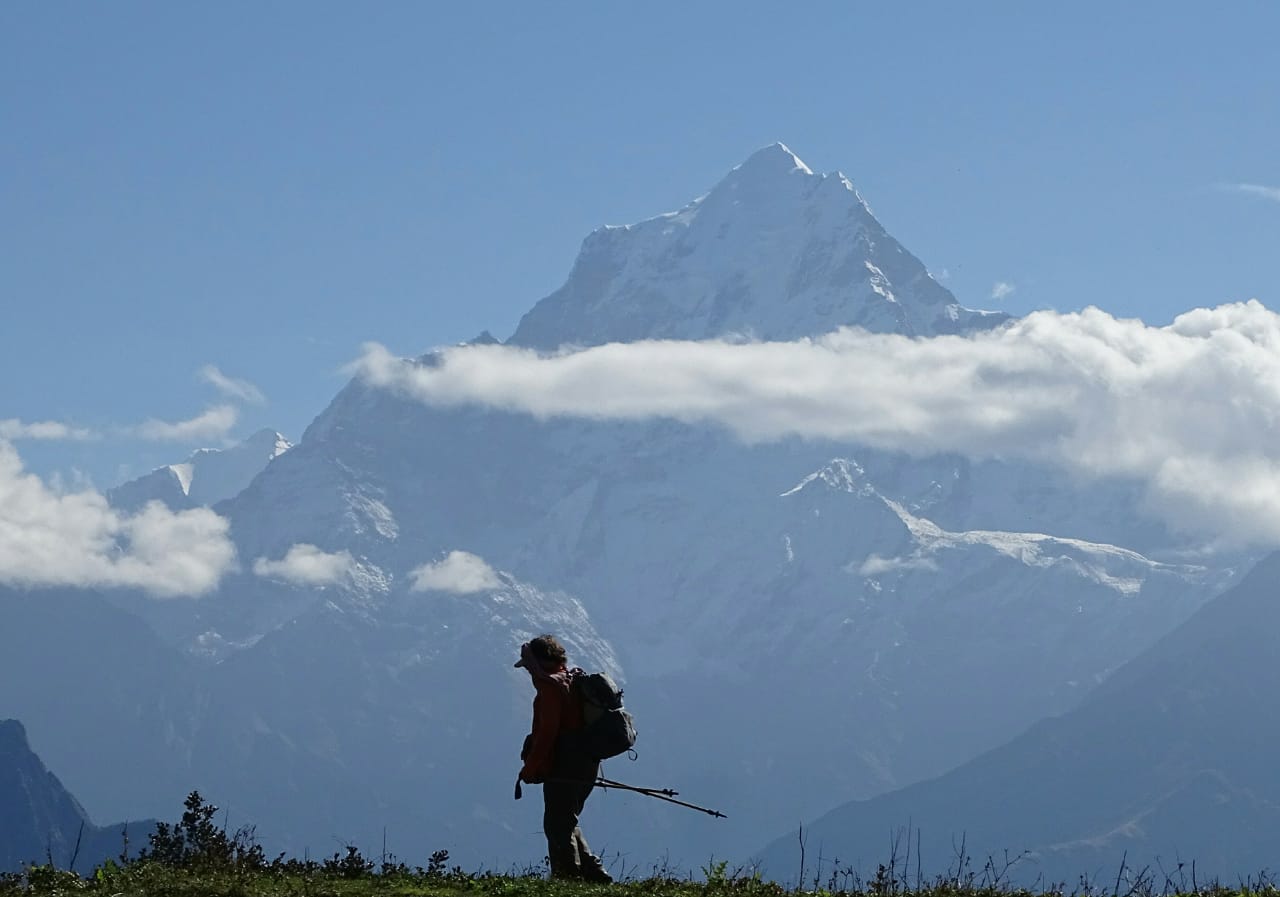
Kuari Trek 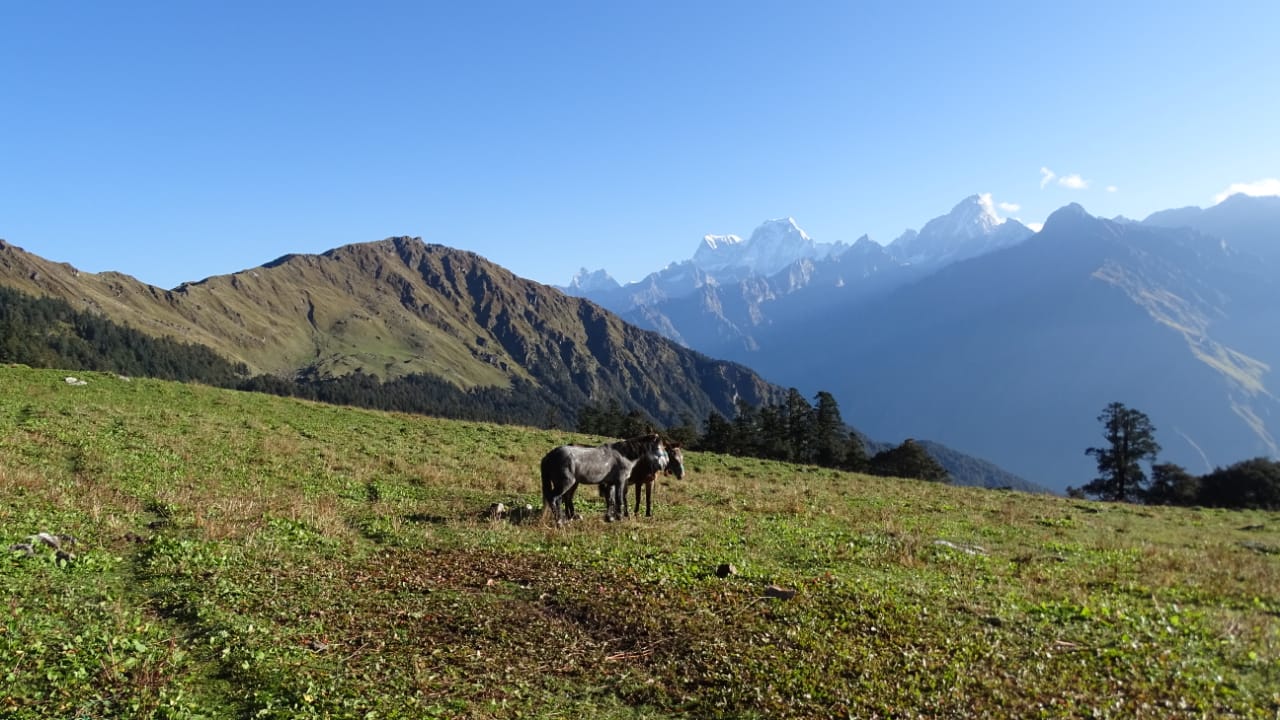
Kuari Trek 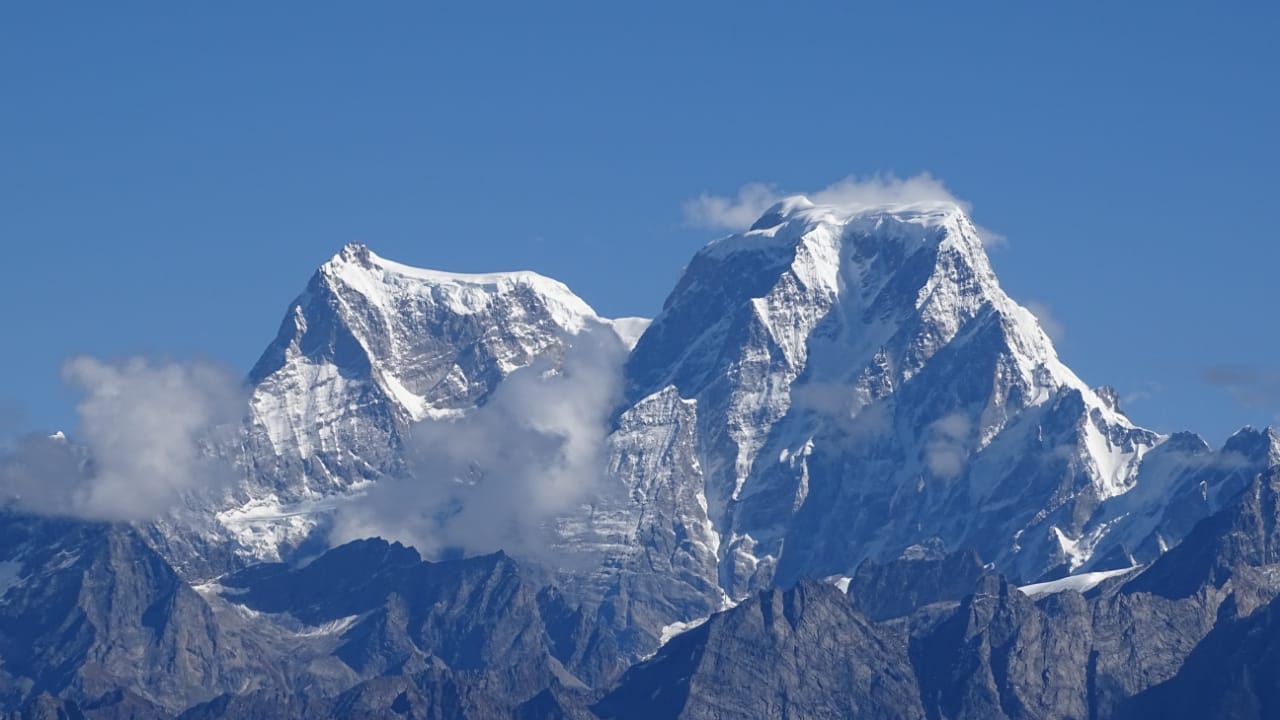
Kuari Trek
Preise und Termine
16.04.2022-23.04.2022
Best time: April-June and September -November
This trek is ideal as a yoga trek and/or in combination with an ashram stay in Rishikesh. Please submit a request here.
from 2 participants 700 € /person
from 4 participants 650 € /person
from 6 participants: 600 € /person
Tour Info
Requirements
A moderate Himalayan trek over 4264 m. The stages are between 5-6 hours long. It is suitable as a yoga trek, family trek or for active relaxation.
A certain level of fitness should be there.
Information about the Trekking Tours with Chalo! Travels
Mountain guide and trekking team
On all our treks we have at least one (for larger groups of 6 participants two) trained local mountain guide. Our mountain guides have all completed at least the Indian mountaineering training, many of them have also completed the advanced courses.
They are familiar with the trekking routes and know the terrain excellently. All our mountain guides speak English.
In addition, there is a local team consisting of a cook (if the group consists of only two participants, the mountain guide also takes over the tasks of the cook), helpers, horsemen with horses or Nepalese porters, depending on the type of trek.
All our team members have been working with us for years, are very friendly and always strive to provide our guests with a great trekking experience. Their English (besides of the Guide) is rather mediocre or non-existent, but this is not necessarily a hindrance to communicating with them.
Trekking routes
The trekking routes are designed according the skills of our guests and are all feasible for a person with a good fitness level, unless otherwise mentioned. The daily routes are between five and eight hours long (with breaks) and an average increase of around 500-800 metres of altitude is completed.
In between, rivers may have to be crossed. The paths are partly well developed, but sometimes also almost non-existent. On our trekking routes there are hardly any villages in between, so we will take enough food for the whole tour.
On our treks we cross passes, snow or glaciers. On steep slopes, we have safety equipment with us.
Daily routine (Depending on the length and intensity of the trek, the times may vary)
7: 00 am Get up with Tea
7:30-8:30 am Breakfast
7:00-9:30 am Dismantling of the camp
8:00- 9:30 am Start Trek
1:00 pm Lunch on the way
3:00-5:00 pm Arrival at the camp and camp construction
3:30-5:30 pm Snacks
7:00 pm Dinner
Altitude and altitude sickness
Altitude sickness is a very important topic that should not be underestimated, especially during our trekking tours in the Indian Himalayas. At altitudes above 3500 m, our body has to slowly get used to the low air pressure, which also causes less oxygen to enter our lungs. The first signs of altitude sickness are headaches, which are accompanied by dizziness, nausea, insomnia and loss of appetite. It becomes problematic when water accumulates in the lungs and brain and edema occurs. Then only the immediate descent to lower altitudes will help. To prepare for the heights on our treks, we will either spend a few nights at high altitudes before the trek or slowly ascend during the trek to acclimatize. If we notice that there are problems with our guests (each person is otherwise able to acclimatize, regardless of age, gender and fitness level), it may happen that either the entire group or the concerned participant descends/returns with a team. In addition, it makes sense to take an emergency drug for altitude sickness. For this, it is best to consult the pharmacy or the travel doctor. For certain treks we will also have oxygen with us.
Luggage
Each trekking participant is responsible for his own clothes and personal belongings. Depending on the trek, we are either with horses or porters. If we have load horses, one bag per participant can be loaded onto the horse. In the case of treks with porters, all personal luggage must be carried independently. Tents, sleeping bags, mattresses and food are carried by our porters.
For trekking tours with horses, a day backpack with space for the lunchbox, a water bottle and warm overcoat clothing should be taken with you. Here to the complete packing list for our trekking tours.
Packing list for trekking tours
- sleeping bag at least -10°C
- large backpack or soft carrying bag so that the load animals can carry the luggage
- Small carrying backpack for the day approx. 30-40 l with rain protection
- flashlight/headlamp
- 2 refillable water bottles
- hiking poles
- passport and passport copy
- camera with spare battery and memory card
- headgear as sun protection
- Good Sunglasses
- cap
- Scarf, Buff
- Gloves
- wind-proof trekking pants
- trekking pants
- Functional Underwear Long
- hiking boots
- socks thick and thin
- sneakers, sandals and/or slats
- windbreaker
- Warm Jacket
- fleece sweater/jacket
- Tshirts
- sunscreen, lip balm min. Protection 40
- fat cream
- water purification tablets (boiled and filtered water is provided)
- own medications for headaches, nausea, digestive problems, colds)
- bubble patches and dressing material
- own hygiene articles
- Toilets Paper
- hand disinfection
Meals
During the trek there will be a vegetarian full catering. Water is either boiled or we have a water filter with us.
Breakfast (daily selection):
- Coffee/Tea
- Oatmeal porridge/muesli/cornflakes/Indian porridge
- Indian breakfast
- Sliced fruit/vegetables
Lunch (mostly lunchbox), sometimes warm in the camp
- Sandwiches/Indian (rice, chapati, vegetables)/potatoes
- Juices
- Chocolate
- Fruit
Snacks
- Tea/coffee
- Cookies
- French fries/Indian snacks
Soup
Dinner (depending on the length of the Trek mix of Indian/Chinese/Continental)
- Vegetable dish
- Lentil dish
- Rice/noodles
- Chapati
- Salad
- Dessert
Accommodation and camp
We have very comfortable and spacious two-man tents. Our mattresses are practical but simple if there are problems with sleeping on hard surfaces, please take your own mattress with you or order from us. Our sleeping bags are freshly washed and have a very good quality with comfort zone up to -5°C/extreme zone up to -20° C. It is recommended to bring personal indoor sleeping bags.
In addition, we have a spacious dining tent with tables and chairs, a kitchen tent for the team and a toilet tent. For treks up to 4 people, the kitchen tent can also act as a dining tent at the same time.
For trekking tours with porters, we will take our smaller, lighter tents with us and do without a toilet tent.
Weather
In the Himalayas, temperatures fluctuate widely. While it can get warm up to 25°C during the day and the sun is not only warming, but also very intense (sun protection is a must), it can also cool down significantly below the minus-grade at night, especially in the months end of September and October, as well as in June. There may also be weather changes with snow on the passes.
